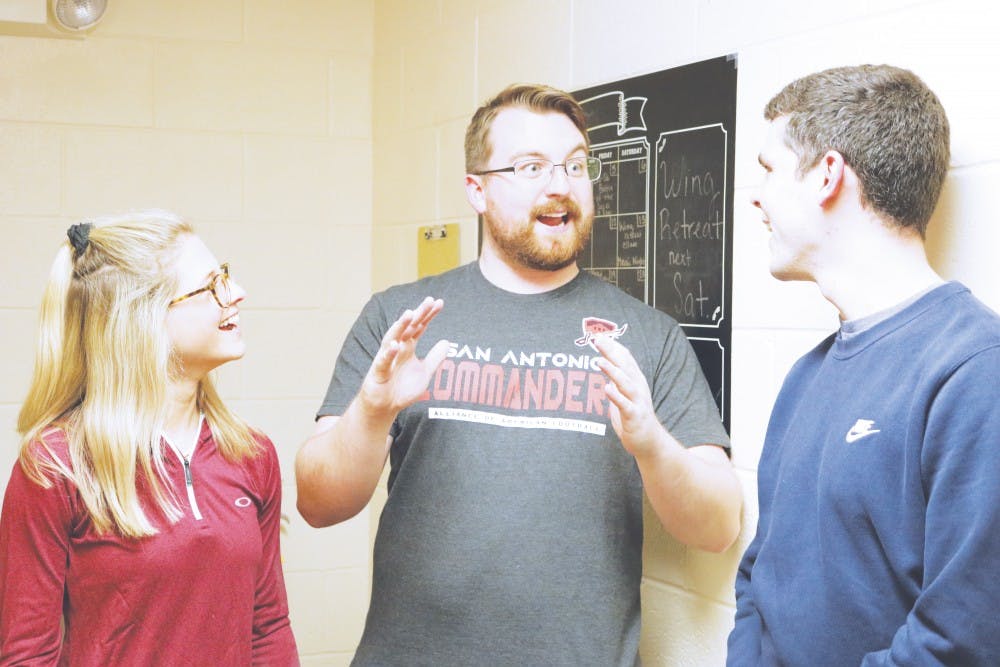Nicki Mortland | Contributor
The words "intentional community" are words that every Taylor student hears at one point or another. It's our ultimate goal, ideally the reason for our programming and the heart of our conversations. However, too often students feel like one or more parts of themselves can't fit into this community.
Taylor, like many other Council for Christian Colleges and Universities campuses, has fallen behind in regards to intention towards diverse populations. Many groups of students on campus feel that they do not fill the role that Taylor expects or desires them to, and need to quiet or hide parts of their identities.
Perceived norms of a community develop through almost anything: heteronormative language spoken from the chapel stage, events and protests that are allowed or not allowed to take place, costumes chosen for Silent Night that stereotype cultural identities, censorship of female bodies and the lack of censorship of males. Although there may be disagreement on what this norm includes, most students acknowledge it in one form or another.
"Students recognize when a piece of themselves does not fit what they perceive the Taylor community expects of them," junior Thaddeus VanOverberghe said.
This norm doesn't even have to be realistic to be perpetuated and to hurt our community. For marginalized students, an assumed norm takes away their sense of safety and ability to engage comfortably.
Students of color, LGBTQ+ students, students with different theological backgrounds, or any number of other identities can find themselves unable to speak with the confidence that they will be listened to. It ignores the multiplicity of diversity and it takes away students' ability to be fully involved in their community. It hurts seemingly unaffected community members too, by denying them the opportunity to learn from voices and opinions other than their own.
As students who care about each other, how should we respond?
"To be in a place where you know for sure you are not the norm, takes resilience," Rev. Greg Dyson, special assistant to the president for intercultural initiatives, said.
Though new to Taylor, Dyson already has a loving but aware view of the community. He was cautious and careful with his words as he listened and responded to my concerns. Mainly, Dyson hopes that Taylor can be a place of honesty and resilience where people are honest about who they are.
He acknowledged the challenge of that, and continued to return to his desire that Taylor's community be a place of honesty.
"I think the question is, what is the community calling for? We have to learn to grapple with this now, because it's a challenge your entire life," Dyson said.
If you don't experience exclusion and erasure, ask your friends, ask the people on your wing and at your table, if they have ever felt silenced by our community. If you and your immediate groups have always felt listened to, it's time to expand.
VanOverberghe also has great hopes for the community.
"I pray that we would all be the body of Christ whose commonality is sharing the love of God, and whose differences are life-giving." VanOverberghe said. I echo this.
Start listening to someone else. Learn to ask questions and lovingly make space for the answers. Taylor University has LGBTQ+ students. Taylor University has students of color. Taylor University has a multitude of students with varied experiences, voices, and beliefs - all deserve to have a space within the community, rather than on the outskirts of it.





